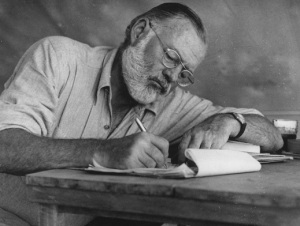
At REH: Two-Gun Raconteur, Charles Gramlich argues that heroic fantasy, far from being merely “juvenile” entertainment, is literature that deserves our respect and attention. It continues to fascinate and entertain because it illuminates human nature:
Heroic fantasy is, and always has been, a literature of myth making and myth exploration. As such, it may well be the most important type of literature ever attempted. The tales in this genre are not about telling things the way they are, or even how they were. They’re about telling, or at least hinting at, the deepest mysteries and truths of human existence. …
But whether we speak of 200,000 year old sapiens or 50,000 year old ones, the fact remains that our mind is their mind, with a lot of culture and a little bit of rational science as icing on the cake. Both the roots and the trunks of our myths, and our realities, arise from the ways that early Homo sapiens tried to understand their mysterious and dangerous world.
Gramlich is right. Despite our veneer of civilization, we have scarcely changed since the Ice Age. Life remains a battle for survival, as well as a battle to uphold one’s code of honor. That’s why we can’t help but be fascinated by tales of a hero who bravely faces seemingly overwhelming odds and must dig down deep to tap hidden strength. The genre Robert E. Howard perfected has continued in new and surprising forms, such as Westerns and detective fiction.
Indeed, some of our greatest literature strips away our illusions about ourselves and confronts us with our true nature, which has not changed since mankind’s dawning. Some such works, even those set in the present day, uncover ancient ways we imagine we’ve outgrown. In African Genesis, screenwriter Robert Ardrey reflected on one such piece that may surprise you:
West Side Story is a supreme work of art for many reasons not the least of which is truthfulness. The authors treat the romantic fallacy is if it did not exist. On a stage laid bare, and in young hearts laid naked, we watch our animal legacy unfold its awful power. There is the timeless struggle over territory, as lunatic in the New York streets as it is logical in our animal heritage. There is the gang, our ancestral troupe. There is the rigid system of dominance among males within the gang, indistinguishable from that among baboons. There is the ceaseless individual defence of status… And there is the hunting primate contribution, a dedication to the switchblade knife as unswerving as to the antelope bone. p. 337
From the tension between the individual and his tribe arise self-realization and belonging, as well as individual competition and group cooperation. E. O. Wilson’s insights in Sociobiology tell us that loyalty and altruism are evolutionary adaptations that not only preserve the group, but give our lives meaning and purpose. The “mysterious and dangerous world” Gramlich talks about in his post has birthed a number of successful species, and we are among that number. That’s the hopeful message heroic fantasy makes real for us. In Robert Ardrey’s famous observation, we humans are “bad-weather animals, designed for storm and change.” We are fighters. We are survivors.





